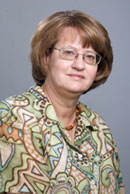A new book is available that you need to add to your library. Evangelical and Frontier Mission: Perspectives on the Global Progress of the Gospel is edited by two of my friends, Beth Snodderly and Scott Moreau. This work represents a collection of chapters related to missions past, present, and future.
Beth is President of William Carey International University and Southwest Regional Vice President of the Evangelical Missiological Soci ety. You may find several of her blog posts at the William Carey International Development Journal. Scott is Professor of Intercultural Studies and Missions at Wheaton College. He is Editor of Evangelical Missions Quarterly and General Editor of the Encountering Mission series (Baker Books).
ety. You may find several of her blog posts at the William Carey International Development Journal. Scott is Professor of Intercultural Studies and Missions at Wheaton College. He is Editor of Evangelical Missions Quarterly and General Editor of the Encountering Mission series (Baker Books).
I recently asked Beth to comment on this work. Here is the interview.
Can you provide a brief overview of this book?
This book is a collection of case studies in evangelical reflection and praxis in relation to what we see as the continuing frontiers in mission. This means that the collection is not intended to give a full picture of Evangelicals and all of our efforts. Rather, it is a picture highlighting elements of what we as editors consider the most central of the numerous evangelical missional trajectories. Despite the numerical success of Evangelicals globally over the twentieth century, there are significant challenges ahead. In the final section we are oriented to some of these challenges.
Why did you and Scott edit this work?
Wonsuk Ma, Director of the Oxford Center for Mission Studies and editor of Regnum Press, was travelling around the world looking for an Evangelical contribution to the Edinburgh 2010 study series that Regnum is publishing. He came to the US Center for World Mission more than once challenging us to realize that if someone didn’t put together a book from the evangelical perspective, then it would be left to the World Council of Churches to reflect on the last 100 years and shape the thinking of the next 100 years of missions. He wanted to see the history of the Perspectives movement, something ab out Fuller’s School of World Mission, majority world leadership, and more.
out Fuller’s School of World Mission, majority world leadership, and more.
How were the contributors selected for each chapter?
These are people Scott and I know who are connected with the Evangelical Missiological Society or the US Center for World Mission. We chose people who could write from personal experience or original research about key evangelical and frontier missions topics.
Are there other books available that are similar to yours? If so, how does this one differ?
I do not know of any other books like this. In a sense we gave a voice to many who are not writing in the academic missions journals. The authors are scholar-practitioners, many with emphasis on the “practitioners.” We have first-hand accounts and comparisons of two of the four conferences commemorating Edinburgh 1910: Tokyo 2010 and Cape Town 2010. Allen Yeh of Biola, who attended all four 2010 celebrations, has not yet published his reflections.
What are some of the present trends among Evangelicals on the frontier?
We see evangelicals returning to a holistic gospel and Kingdom mission.
In a chapter by Ralph Winter (who died in 2009), he identifies the “biggest” trend, or frontier, namely Kingdom Mission: “Evangelism is the highest priority. But it becomes weak and lacks credibility if it does not generate committed believers who will tackle the world’s problems. A massive shift in that direction is already becoming The Biggest Trend in World Mission” (p. 273).
We have chapters by Rene Padilla about Kingdom Mission, Greg Boyd about “a war-torn creation,” and Bob Priest, who finishes the book off with the suggestion that a new era of missions is upon us.
Thank you, Beth, for sharing about your book.
If you would like to see the table of contents, you may go to Amazon and view it through the reader.
